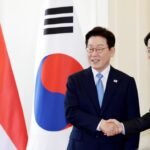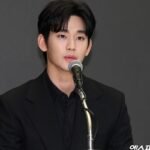Introduction to Lee Hwang
Lee Hwang (퇴溪 李滉), regarded as one of Korea’s foremost Confucian scholars of the 16th century, made significant strides in the development of Confucian thought and education. Born in 1501, he emerged from a distinguished family in the region of Gyeonggi Province, an area where Confucianism was gaining prominence as a guiding ethical framework. His early life was profoundly influenced by the intellectual environment fostered by his mother, who instilled in him the values of education and moral integrity, shaping his future as a respected educator and thinker.
The socio-political landscape of Korea during Lee Hwang’s formative years was marked by the reign of King Jungjong, a period characterized by political instability and factional strife among Confucian scholars. This era witnessed the challenges of integrating Confucian principles into governance amidst corruption and power struggles. The turbulent conditions during his upbringing necessitated a strong moral compass, and Lee Hwang’s exposure to Confucian ideology became a beacon that guided his philosophical and pedagogical pursuits.
Lee Hwang’s academic journey began at a young age, with a deep commitment to Confucian classics. His studies took him to various educational institutions, where he refined his understanding of Confucian ethics and philosophy, eventually becoming a prominent figure within the Daegu Confucian school. His contributions to the field were not merely theoretical; they fostered a practical application of Confucian tenets within the context of his time. Lee Hwang’s dedication to education and character cultivation played a pivotal role in institutionalizing Confucian teachings, influencing generations of scholars and establishing a legacy that continues to resonate in contemporary Korean education and philosophy.
The Early Life of a Scholar
Lee Hwang, later celebrated as one of Korea’s foremost Joseon Dynasty scholars, was born in a period characterized by profound societal and cultural transformations. His early life was deeply embedded in an environment that valued learning and ethical principles, setting the stage for his illustrious academic journey. Raised in a family that esteemed Confucian values, Lee Hwang was exposed to classical literature and philosophy from a young age, which would significantly shape his intellectual pursuits.
The formative years of Lee Hwang were marked by a rigorous academic regimen, often emphasized by his family and mentors. He displayed an early affinity for literature, eagerly immersing himself in the works of renowned philosophers and poets. This early engagement with classical texts fostered his desire for knowledge and led to his relentless quest for understanding the complexities of life and human virtue. His education was not confined to formal schooling; instead, he was profoundly influenced by local sages who imparted lessons on ethics and philosophy.
Moreover, significant historical events during his childhood undoubtedly affected his worldview. The sociopolitical landscape of the Joseon Dynasty, including conflicts and changes in leadership, instilled in him a sense of moral responsibility and a yearning for societal harmony. In his adolescence, Lee Hwang began to recognize the importance of scholarly pursuits not merely as an intellectual endeavor but as a means of contributing to the betterment of society. His interactions with contemporaries and elders further inspired him, as he sought to blend personal enlightenment with social obligation.
In observing the world around him, Lee Hwang cultivated a profound understanding of the balance between knowledge and ethical living. These early influences, combined with his innate curiosity, laid the foundation for his later contributions to Confucian thought and his enduring legacy as a scholar committed to moral integrity and excellence in learning.
A Scholar’s Struggles
Lee Hwang’s journey toward becoming a revered scholar was fraught with numerous challenges that shaped his character and intellectual development. The Confucian examination system, which served as the primary pathway to scholarly achievement during Lee Hwang’s time, was notorious for its rigor and stringent demands. Aspiring scholars faced an arduous process that required not only extensive memorization of classical texts but also the ability to articulate complex ideas in an eloquent manner. This system placed immense pressure on candidates, often leading to intense competition among peers and a constant quest for perfection.
In addition to the challenges posed by the examination system, Lee Hwang experienced profound personal losses that tested his resolve. The death of close family members, particularly his mother, left a lasting impact on him. These losses instilled a sense of grief, yet they also awakened in Lee Hwang a deeper understanding of human suffering and the transient nature of life. This unique perspective influenced his scholarly work, driving him to explore themes of morality, ethics, and the pursuit of wisdom in light of adversity.
Societal expectations further complicated Lee Hwang’s path. As a member of the yangban, or the scholar-official class, he was bound by the conventions of aristocratic society, which often emphasized conformity and adherence to societal norms. The pressure to succeed not only in examinations but also in fulfilling societal roles weighed heavily on him. Despite these external expectations, Lee Hwang displayed remarkable resilience. His determination to pursue knowledge and wisdom, combined with his ability to navigate the multifaceted challenges of his environment, ultimately allowed him to carve a distinct path in the realm of Confucian scholarship.
The Rise of a Confucian Leader
Lee Hwang, often recognized as a pivotal figure in Korean philosophy, emerged during an era when Confucian ideals were supplanting indigenous beliefs in governance and education. His ascent in Confucian academia and public life was marked by an unwavering commitment to the principles inspired by Confucianism, prioritizing morality, ethics, and social harmony. He became renowned not merely as a scholar, but as a luminary who profoundly influenced the structure of educational institutions during the Joseon Dynasty.
One of his most significant contributions was the establishment of Confucian academies, known as Seowon. These institutions played a crucial role in disseminating Confucian teachings and fostering a generation of scholars who adhered to his philosophical insights. Lee Hwang’s academies became centers of learning where students immersed themselves in the study of Confucian texts, which included the Analects and other classics, reflecting the cultural and intellectual spirit of his time. The curriculum emphasized moral education, civic responsibility, and the cultivation of virtuous character—an embodiment of Lee Hwang’s belief in education serving as a vehicle for societal improvement.
In addition to establishing these academies, Lee Hwang served as a mentor to numerous students who later became influential scholars themselves. His teachings, which emphasized both the importance of classical studies and practical application, laid the foundation for future generations of Confucian thinkers. His philosophy not only enriched the academic landscape but also permeated the broader public discourse, influencing governance and ethical practices in society.
Lee Hwang’s impact extended beyond his lifetime, as his writings and teachings inspired subsequent Confucian leaders. His legacy continues to resonate in Korean culture and education, embodying the enduring relevance of Confucian values. The rise of Lee Hwang as a Confucian leader illustrates the transformative power of philosophical thought in shaping both individual character and collective societal frameworks.
Philosophical Contributions and Innovations
Lee Hwang, a prominent figure in the evolution of Korean philosophical thought, made significant strides in interpreting Confucianism, positioning it as a framework for moral governance and human nature understanding. His philosophy, marked by a distinct emphasis on morality, stood out in comparison to his contemporaries, who often focused more narrowly on ritualistic practices and socio-political hierarchies.
At the core of Lee Hwang’s interpretation was the belief in innate human goodness, a notion that painted a more optimistic picture of human nature than that which was generally accepted in his time. He argued that benevolence and righteousness were inherent traits that could be cultivated through education and self-reflection. This perspective on human nature had profound implications for governance; Lee advocated that rulers should govern with virtue and moral integrity, arguing that ethical leadership would pave the way for a harmonious society. Unlike many of his peers, who may have prioritized strict adherence to established norms, Lee’s approach was more dynamic and adaptive, acknowledging the complexities of human behavior.
Moreover, Lee Hwang introduced the idea that moral governance must encompass both the ruler and the ruled. He posited that a government should be rooted in the well-being of its people, emphasizing the reciprocal relationship between a leader’s virtues and the moral development of citizens. This concept was revolutionary, especially during a time when systems often prioritized power over morality. By intertwining philosophical ideals with practical governance strategies, Lee Hwang’s contributions fostered an environment where ethical principles were central to political discourse.
Overall, Lee Hwang’s philosophical contributions have left a lasting legacy, shaping contemporary understandings of ethics in leadership and human relationships in society. His innovative interpretations of Confucianism continue to resonate, emphasizing the essential connection between moral character and effective governance.
The Legacy of Lee Hwang
Lee Hwang, a prominent figure in Korean Confucianism, has left an indelible mark on the intellectual landscape of Korea and has significantly influenced subsequent generations of scholars and thinkers. His teachings, deeply rooted in Confucian principles, have provided a framework for understanding ethical conduct and societal roles. Lee Hwang’s emphasis on virtues such as integrity, loyalty, and filial piety resonates not only within the academic community but also permeates the everyday lives of individuals, shaping the moral foundations of Korean society.
One of the key aspects of Lee Hwang’s legacy is his ability to merge traditional Confucian ideals with the evolving realities of his time. He advocated for a rational approach to governance and ethics, encouraging a sense of personal responsibility and moral integrity. This perspective has fostered a resilient and adaptable Korean identity, allowing future scholars to reinterpret traditional teachings in the context of contemporary challenges. His works, particularly the “Ten Diagrams on Sage Learning,” continue to serve as essential texts in Confucian studies, influencing educational curricula in Korea and beyond.
Furthermore, Lee Hwang’s impact transcends geographic boundaries. As his ideas gained recognition, they contributed to discussions on ethics and governance throughout East Asia. His teachings have inspired not only historians and philosophers but also political leaders who seek to navigate complex societal issues through a moral lens. The ethical constructs developed by Lee Hwang have been instrumental in establishing a strong foundation for civic engagement and societal welfare, reinforcing the importance of moral leadership in both personal and public spheres.
Through his scholarly contributions, Lee Hwang has carved a timeless path of wisdom that continues to guide future generations. The adaptive nature of his teachings ensures that they remain relevant, echoing in the values and aspirations of those who strive to achieve ethical excellence in an ever-changing world.
Controversies and Challenges
Lee Hwang, a prominent Confucian scholar of the Joseon Dynasty, faced numerous controversies and challenges throughout his intellectual career. Among these, his philosophical ideas were often met with skepticism and critique from his contemporaries. Critics, notably from rival schools of thought, questioned his interpretations of Confucian texts and the applicability of his ideas to the social and political issues of the time. This opposition not only stemmed from ideological differences but also from the competitive nature of scholarly pursuits in 16th-century Korea, where personal reputations were closely tied to the success of one’s philosophical stances.
Moreover, the political landscape of Joseon posed further challenges for Lee Hwang. During a time marked by factionalism and strife, his commitment to reform and reinterpretation of Confucian principles often placed him at odds with powerful political figures and established traditionalists. The tension between his progressive views and the conservative elements of society created a contentious environment, leading to instances where Lee faced political backlash and social ostracization. His ability to navigate these challenges was indicative of his resilience and conviction in his beliefs.
In response to opposition, Lee Hwang employed a strategy of steadfastness. He engaged in a methodical and articulate defense of his philosophical position, emphasizing the importance of moral integrity and practical governance in Confucianism. Rather than retreating in the face of criticism, he utilized scholarly dialogues, writings, and public debates to present his arguments, ultimately reinforcing his legacy as a philosopher committed to the ideals of his time. Lee Hwang’s ability to maintain his philosophical stance amid challenges exemplifies the enduring nature of his contributions to Korean thought, solidifying his influence across generations.
Cultural Depictions and Influence
Lee Hwang, a prominent figure in Korean history, has significantly influenced various forms of literature, art, and popular culture throughout the years. His life, teachings, and philosophical insights serve as a rich source of inspiration for writers, artists, and scholars alike. Literary works often explore his profound thoughts, reflecting the essence of Confucian ideals and ethical governance. In contemporary literature, authors portray Lee Hwang’s values through narratives that emphasize moral integrity and civic responsibility, allowing modern readers to connect with these timeless teachings.
In visual arts, depictions of Lee Hwang can be found in traditional paintings as well as modern installations. Artists often strive to embody his wisdom through symbolism, using imagery that resonates with his teachings about knowledge and virtue. The juxtaposition of historical and contemporary styles demonstrates how his philosophical legacy has transcended time, appealing to diverse audiences who appreciate the aesthetic representations of his life.
Furthermore, Lee Hwang has made notable appearances in popular culture, including television dramas, film adaptations, and even animated series. These portrayals often dramatize his experiences and teachings, bringing his character to life for various viewers. By contextualizing his ideas in relatable narratives, creators engage audiences with the ethical dilemmas and societal issues that Lee Hwang addressed. This integration of historical figures into modern storytelling showcases the relevance of his contributions, as society grapples with similar challenges today.
As a result, Lee Hwang’s legacy continues to resonate remarkably with contemporary society. His representation across multiple forms of media not only commemorates his teachings but also encourages ongoing discourse about the application of his wisdom in our lives. The enduring fascination with Lee Hwang highlights the profound impact he has had on shaping cultural values that remain relevant even in the 21st century.
Conclusion: Lessons from Lee Hwang’s Life
Lee Hwang’s life serves as a profound illustration of the principles that can guide individuals towards personal and societal development. One of the primary lessons derived from his extensive work is the value of education. Lee Hwang emphasized the pursuit of knowledge as a lifelong commitment, advocating for an educational system that nurtures curiosity and critical thinking. His belief in the transformative power of education resonates in today’s context, where acquiring knowledge remains an essential catalyst for innovation and personal growth.
Additionally, the ethical framework established by Lee Hwang highlights the importance of morality in both personal and public spheres. He articulated the necessity for individuals to act with integrity and virtue, setting a moral compass that directs their decisions and actions. In our contemporary world, where ethical dilemmas are rampant, his teachings inspire individuals to prioritize ethical considerations in their choices, thereby fostering a more just and equitable society.
Perseverance is another cornerstone of Lee Hwang’s philosophy. His life exemplified resilience in the face of adversity, demonstrating that the road to success is often fraught with challenges. This tenacity serves as a motivating force for individuals today, urging them to remain steadfast in their goals and dreams despite obstacles. By internalizing the spirit of perseverance that Lee Hwang embodied, readers may find renewed strength to pursue their aspirations with unwavering commitment.
In essence, the lessons from Lee Hwang’s life are timeless and universally applicable. Educators, leaders, and individuals alike can draw inspiration from his dedication to learning, ethical integrity, and unyielding perseverance. As we reflect on his legacy, it is vital to consider how these lessons can be integrated into our lives and shared with future generations, ultimately contributing to a more enlightened and ethical society.















